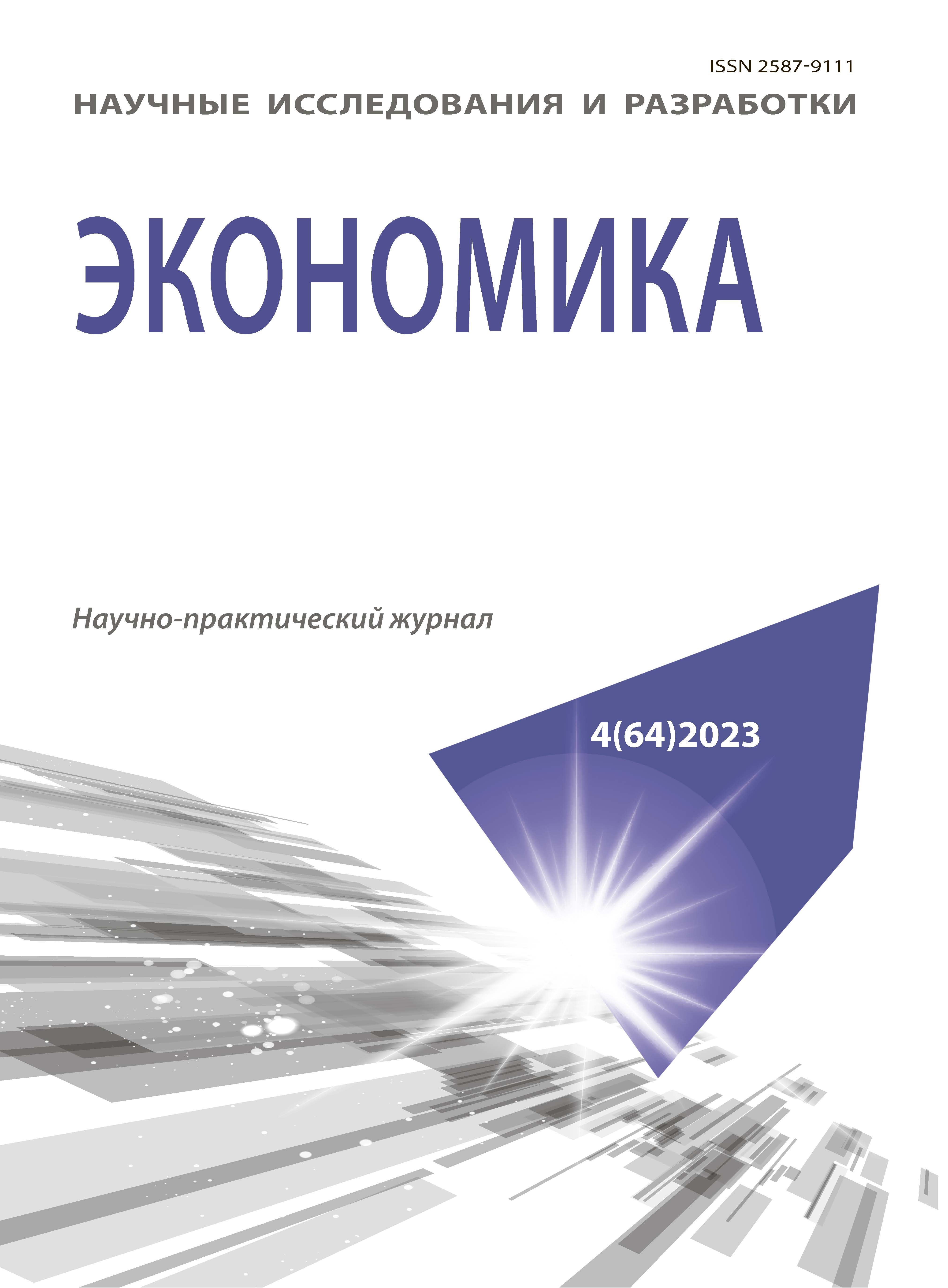Tula, Tula, Russian Federation
Tula, Tula, Russian Federation
The paper attempts to identify the main subjects that contribute to the development of systemic economic crises that occur with the periodicity of N. Kondratiev’s cycles. Catastrophe theory approaches were used to assess the sustainability of economic growth. Econometric models of stable and unstable relationships between economic growth rates and growth rates of personal consumption of the population, government spending and investment were tested. Unstable connections were modeled in the form of equations of the elementary theory of catastrophes. At the same time, models of stable links and models of catastrophes of various types were built. Judgments about instability were made in the case when the catastrophe models turned out to be more deterministic. The obtained estimates of the stability of economic growth suggest that the early development of instability and the creation of prerequisites for an economic crisis were facilitated by the policies of states and the strategies of financial capital. Signs of instability due to these factors are found 25–30 years before the onset of the crisis. Summarizing the results of the study suggests that the strategies of financial capital and the policy of the state as subjects of the economy can contribute to the development of systemic economic crises.
Kondratiev’s cycles, systemic crises, disaster thorium, econometric models, state, financial capital
1. Sarunas Markus. Kondratieff, N. and Schumpeter, Joseph A. long-waves theory Analysis of long-cycles theory. Universities in Oslo, 2012.
2. Markku Wilenius Leadership in the sixth wave-excursions into the new paradigm of the Kondratieff cycle 2010-2050. European Journal of Futures Research. March 2014, 2:36. Available at: http://link.springer.com/article/10.1007%2Fs40309-014-0036-7
3. Tanning, T., Saat, M. and Tanning, L. Kondratiev wave: overview of world economic cycles. Global Business and Economics Research Journal, 2013. Vol 2(2): 1-11. Available at: www.journal.globejournal.org/index.../article/...
4. Smirnov A.S. What is the reality behind the «Kondratyev waves»? Real long cycles // Kondratieff waves. 2014. No. 3. P. 93-169. (in Russian)
5. Makasheva N.A. The problem of integrating the theories of the econom-ic cycle and equilibrium (the second half of the 1920s - 1930s) and the project of the theory of eco-nomic dynamics by N. D. Kondratyev // Questions of Economics. 2014. No. 1. S. 22-39. (in Russian)
6. Basovskiy L.E. Post-industrial structures in the Russian economy: mon-ograph / L.E. Basovskiy, E.N. Basovskaya. M.: INFRA-M, 2017. 159 p. DOI:https://doi.org/10.12737/21808 (in Russian)
7. Basovskiy L.E. Kondratyev cycles in the US economy // Research and Development. Economy. Moscow: INFRA-M. V. 3. I. 3. C. 28-36. DOI:https://doi.org/10.12737/11580 (in Russian)
8. Marchetti C., Nakicenovic N. The Dynamics of Energy Systems and the Logistic Substitution Model. Laxenburg, Austria, 1979.
9. Anderson, T. W. The Statistical Analysis of Time Series. Wiley, New York, 1971.
10. Natashkina E.A., Basovsky L.E. Kondratieff Waves and Technological Ways // Journal of Economic Theory. 2012. No. 3. S. 169-173. (in Russian).
11. Basovskaya E. N., Basovskiy L. E. Prospects for the Development of a Systemic Global Economic Crisis // Scientific Research and Development. Economics. 2019. no. 1. pp. 4-7. DOI: https://doi.org/10.12737/article_5c5983d5290c77.78838679 (Date of access 27.04.2023). (In Russian).
12. Basovskiy L. E., Ivanova O. S., Basovskaya E. N. Kondratieff Cycles in the Economies of Italy, the Netherlands, Germany and France // Scientific Research and Development. Economics. 2015. no. 6. pp. 26-35. DOI: https://doi.org/10.12737/16673 (Date of access 27.04.2023). (In Russian).
13. Domencio Castrigiano, Sandra Hayes. Catastrophe Theory. CRC Press; 2nd edition. 2003.
14. Thom R. Stability Structurally et Mjrphogenest. N.-Y.: Benjamin, 1972.






